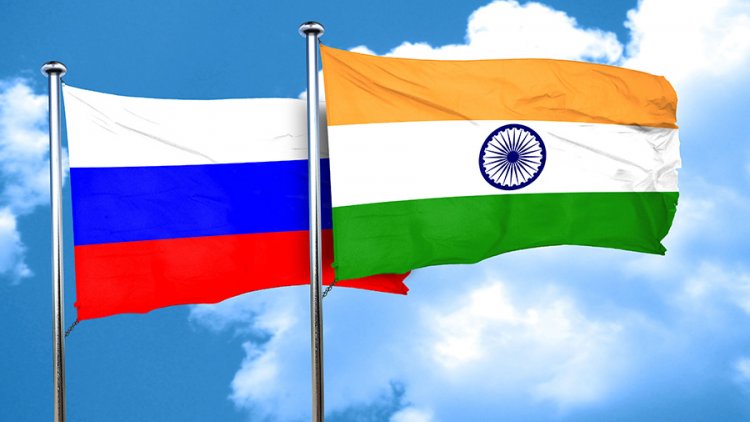India - Russia: India not Backing Price Cap; buying more Russian Crude
STORIES, ANALYSES, EXPERT VIEWS

Even as the West has imposed tough new rules on buying Russian oil, India has been buying more Russian crude than ever before. Since the cap of %60 per barrel was imposed, one tanker a day has sailed out of Russian ports heading towards India’s west coast. That works out to about 1.6 million barrels per day (bpd). That’s up by almost 50 per cent from October and November, which were already record-breaking months.
'December will be the highest level (of Russian oil imports ever by India) and January might be even higher than December,' says Viktor Katona, Crude Analysis co-head at analytics firm Kpler. ‘The amount of actual buying that the Indian refiners are doing is just mind- boggling,’ Katona said.
India evoking unhappiness in Ukraine, Europe and the US
India’s hugely stepped-up purchases of Russian oil, writes Paran Balakrishnan (deputy editor at The Telegraph) “has caused considerable unhappiness in Ukraine and in other European countries that are trying to slash Russia’s oil earnings in a bid to pressure Moscow to stop the war.”
The G7 countries, the EU and Australia have imposed a price cap of $60 on the global sales of Russian crude. To enforce this rule, they decreed on December 5 that ships carrying oil bought at higher prices won’t be able to get insurance, shipping and banking services from Western countries. Cargoes bought at prices below the cap are exempt from the shipping and services ban.
Russia has refused to sell its crude under the price cap mechanism and India has said it will not adhere to the sanctions on Russian crude. But US officials have said market pressure from the price cap could give Indian and Chinese refiners a significant bargaining chip to obtain even steeper discounts from Russia.
The price caps aim to cut Russia’s oil earnings, says Balakrishnan. “Simultaneously, though, the G7 countries don’t want to close off the flow of Russian oil totally because they fear this could lead to global shortages and send oil prices through the roof.”
Nevertheless, buying oil from Russia initially landed India in the bad books of the G7 countries. But Oil Minister Hardeep Puri and Foreign Minister S. Jaishankar have been aggressively defending India’s purchases to the global media, insisting as a poor country it must give its own energy needs priority.
“It’s a sensible policy to go where we get the best deal in the interests of the Indian people and that is exactly what we are trying to do," Jaishankar told parliament last week.
The US has backed down in its opposition to India buying Russian crude. US Treasury Secretary Janet Yellen says India is free to keep buying oil from Russia as long as it doesn’t use Western shipping and financial services to transport it. She also says Washington hopes the price cap will give New Delhi greater leverage to push down the price of Russian crude further.
Russian Oil could trade below $60
In the view of Sanjeev Choudhary (writes on the energy sector for The Economic Times), Indian refiners may be able to source most of their Russian oil purchases at a rate lower than the West's price cap of $60 after international prices fell.
According to Indian industry executives, India hasn't backed the price cap and may yet end up paying lower rates since Russia can't defy the market or reduce discounts to sell at rates higher than the cap. The flagship Urals crude, which made up 80% of India’s Russian oil imports in November, is trading at around $49 per barrel while ESPO blend and Sokol are trading at around $62 and $69 per barrel, respectively.
Multiple government officials and industry executives said domestic refineries will continue to buy cheap Russian oil with no major shipping or insurance trouble expected as the market rate for the key grade has fallen below the cap. The US and its allies have barred the use of its shipping, insurance and financial services for any Russian oil deal struck above the cap of $60.
"The price cap looks more like a posturing. Even the West may not want Russian oil to go off the market," said MK Surana, the CEO of Ratnagiri Refinery and Petrochemicals and former chairman of HPCL. "Very low cap might motivate Russia to consider reducing production rather than produce at uneconomical rates which would reduce overall global supplies and push up prices for all," Surana said.
Russia has said it won't supply to countries backing the cap and may even consider cutting production. "If Russia cuts discounts, India will not buy Russian oil," said R Ramachandran, former chief of refineries at BPCL. "India's aim is not to please Russia but to please its own people."
















